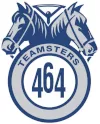Manufacturing Executives Sign On To First-Ever Safety Charter
Almost five years ago, Alco Ventures Inc. boasted rapid growth, high sales, and an efficient workforce. But one key problem threatened to overshadow the company’s success.
“We had to fix our safety issues, or it was going to stop us dead in our tracks,” says Alco Ventures owner and president Ben Hume.
That was in 2007, when the company experienced an all-time low in its safety record, with 22 lost-time accidents in one year. Since then, Hume says the company has worked hard to turn its health and safety performance around, this year reporting 1.5 incidents per 100,000 working hours. And while Alco has yet to reach its goal of zero time-loss injuries, the company is committed to ensuring it never reports the lessons learned in 2007.
“In manufacturing, there’s always some tension between efficiency and safety,” Hume says. “But as CEO, if you don’t put safety front and centre, you lose it.”
With a renewed desire to maintain its commitment to injury prevention, Hume, along with other forward-thinking senior executives in the industry, worked with their industry association to establish a new occupational Health and Safety Leadership Charter. On October 27, 2011, as part of a day-long conference ked by the FIOSA-MIOSA Safety Alliance of BC, Hume and 22 like-minded CEOs signed the charter.
FIOSA-MIOSA CEO Lisa McGuire says the charter helps hold manufacturing companies more accountable to improving workplace injury rates. “It represents a pledge to developing an occupational health and safety culture. And it’s proactive. It moves beyond historical measures that strive for compliance and punish offenders. It recognizes leaders who raise standards, allocate recourses, and ‘walk the talk.”
McGuire says charter signatories recognize the financial benefits associated with injury prevention. “The insistence on a stronger safety culture can result in cost-savings, push competitive advantages, and increase trust between employees and management.”
Although industry rates are trending lower, manufacturing historically faces higher-than-average numbers – more than double that of other B.C. industries. This is expensive. According to WorkSafeBC statistics, injury claims cost the manufacturing sector (including food processing) more than $125 million in 2010.
Most manufacturing injuries are associated with tasks that require repetitive movement, contact with sharp edges, and slips. In Alco’s case, Hume says the company conducted a risk audit, appointed a part-time “Safety champion,” and now rates employee tasks to reduce repetitive strain. The company enforces the mandatory use of safety equipment on the floor at all times, and staff attend safety training and monthly meetings.
Others are taking advantage of the Certificate of Recognition (COR) program to improve safety measures and potentially earn a 15 percent discount on WorkSafeBC insurance rates, Derek Campbell, general manager at Gate Gourmet YVE, says the company’s COR audit and certification led to significant savings.
“Since 2005, our accumulated net savings have been $2 million,” Campbell says. “There really was no added cost, other than managing the business well. We set up a safety committee that included both managers and front-line, unionized staff, and implemented standard operating procedures, like safety talks before each shift, The COR audit highlighted some blind spots and provided us with a blueprint for change.”
“It recognizes leaders who raise standards, allocate resources, and ‘walk the talk.’”
Lisa McGuireFIOSA-MIOSA CEO
—reprinted with the permission of WorkSafe Magazine, WorkSafeBC.
